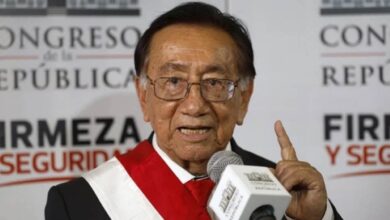Macri: where did his victory come from?
With the result of the legislative elections, the Argentinian president assures the viability of his proposals, and sinks the opposition lead by Cristina Fernández

Leer en Español: Macri: ¿de dónde vino su victoria?
With the result of the legislative elections of last Sunday, Mauricio Macri was the great winner in Argentina. His victory was almost total. Cambiemos, the ruling party, has become the main political force of the country, with a victory above expectations. The victories in the five largest districts placed Macri in a position of power that did not exist since 1985. The Cambiemos alliance won by four points in Buenos Aires, the province where Cristina Fernandez de Kirchner still awaited a victory, a situation that could mark the possible end of her political career.
The Argentinian president obtained 50.69% of the votes with 99,2% of the counted tables. The candidate for Senator Esteban Bullrich, in the province of Buenos Aires obtained seven points more than the former president Fernandez. “The party was not the winner, the winner was the certainty that we can change history, build with love. An Argentinian with desire has no limits, we are unstoppable”, said Macri at the Cambiemos headquarters when celebrating the results.
Macri: “The party was not the winner, the winner was the certainty that we can change history, build with love. An Argentinian with desire has no limits, we are unstoppable”
The official alliance won in 15 of the country’s 24 provinces, including the five most important ones: Buenos Aires, Cordoba, Mendoza, Santa Fe and the federal district of the Capital. Macri so far had governed with a simple majority of 87 of the 257 deputies and 15 of the 72 senators, and this mainly to the internal alliances. But now, the official projections grant 107 deputies.
Read also: Macri: winning over Argentina
The Argentinians, especially the middle class and the rural population, gave the president the biggest boost by giving him an opportunity, after 13 years in which Kirchnerism did not favor the economy in a tangible way. Macri will now use his power to continue with the reforms he deems necessary to get the country out of the economic crisis in which it finds itself, and will continue to use part of the public debt to cover the fiscal deficit that was pushing inflation.
Despite being behind the ruling party, Cristina Fernandez achieved her main objective in the elections upon return to the Senate. This way, in addition to reaffirming herself as the main voice of the opposition, she can enjoy parliamentary immunity now that it is involved in an investigation for corruption.
Read also: Are Macri’s policies working for Argentina’s economy?
Due to the type of elections handled in the southern part of the country, 78% of the 33.1 million Argentines called to the polls voted to renew half of the 257 seats in the Chamber of Deputies and one third of the 72 seats in the Senate. These are the first legislative elections that have been held since the arrival of Macri to the Presidency. 127 deputies are elected for a period of 4 years and 24 senators for 6 years.
With the results obtained, the Argentinian political panorama changes completely. After 70 years, peronism is deeply wounded, leaving it far from a search of the power in a near term. However, it is not possible to make an accurate forecast of what will happen in Argentina soon, because the volatility that has shown in the last 20 years indicates that the road is not defined. However, we can emphasize that Mauricio Macri has arrived to consolidate himself as a political force that surpasses any recent result, and that he will be a reference for the next years.
Latin American Post | Carlos Eduardo Gómez Avella
Copy edited by Laura Rocha Rueda





